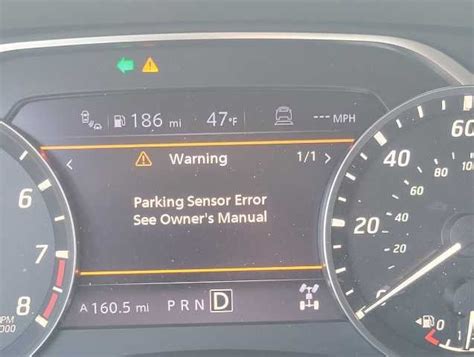Parking Sensor Issues? This Is Your Solution
Parking sensors, those handy little devices that beep increasingly faster as you get closer to an obstacle, are a modern marvel. They significantly reduce the risk of bumps and scrapes, making parking, especially in tight spaces, much less stressful. But like any technology, parking sensors can malfunction. This comprehensive guide will explore common parking sensor issues and offer practical solutions, helping you get back to parking with confidence.
Why Are My Parking Sensors Not Working?
This is often the first question drivers ask when their sensors fail. There are several reasons why your parking sensors might be playing up. Let's delve into the most frequent culprits:
1. Sensor Malfunction:
The sensors themselves can become damaged or faulty. This can be due to:
- Physical Damage: A direct impact, like a bump or a collision, can easily crack or dislodge a sensor. Sometimes, even a minor impact can cause internal damage that's not immediately visible.
- Dirt and Debris: Mud, ice, snow, or even a thick layer of grime can obstruct the sensor's ultrasonic signal, preventing it from detecting obstacles accurately.
- Wiring Issues: Loose connections, frayed wires, or water damage to the wiring harness can disrupt the sensor's communication with the control unit.
2. Control Unit Problems:
The control unit is the brain of the parking sensor system. Problems here can affect all sensors. Potential issues include:
- Software Glitch: Sometimes, a simple software reset can resolve intermittent problems.
- Internal Failure: The control unit itself might fail due to age, wear, or electrical surges.
3. Wiring and Connections:
As mentioned before, problems with the wiring can be a major source of sensor malfunction. This could manifest as:
- Corrosion: Moisture and road salt can cause corrosion in the wiring connections, leading to poor conductivity.
- Broken Wires: Wires can become frayed or broken due to age or physical damage, preventing the proper transmission of signals.
4. Power Supply Issues:
The parking sensor system needs a reliable power supply to function correctly. Issues with the power supply can include:
- Fuse Blown: A blown fuse in the power circuit will prevent the sensors from operating.
- Wiring Fault in the Power Circuit: Similar to sensor wiring problems, faults in the power supply wiring can also stop the system from working.
How Can I Fix My Parking Sensors?
Troubleshooting your parking sensors involves a systematic approach. Let's walk through some practical steps:
1. Cleaning the Sensors:
The simplest solution is often the most effective. Carefully clean each sensor with a damp cloth or a soft brush to remove any dirt, mud, or debris that might be obstructing the signal.
2. Checking the Wiring and Connections:
Inspect the wiring harness visually for any signs of damage, loose connections, or corrosion. If you find any problems, you may need to repair or replace the affected parts. This is often best left to a qualified mechanic.
3. Checking the Fuses:
Locate the fuse for the parking sensor system in your vehicle's fuse box (consult your owner's manual) and check if it's blown. If it is, replace it with a fuse of the same rating.
4. Resetting the Control Unit:
Some vehicle models allow you to reset the parking sensor control unit. This usually involves disconnecting the battery for a short period. Again, consult your owner's manual for specific instructions. This step is not always successful and might require professional assistance.
5. Seeking Professional Help:
If the problem persists after trying these basic troubleshooting steps, it's time to consult a qualified mechanic or auto electrician. They have the tools and expertise to diagnose more complex issues and repair or replace faulty sensors, wiring, or the control unit.
Are There Different Types of Parking Sensors?
Yes, parking sensors come in various types, primarily differing in technology:
- Ultrasonic Sensors: These are the most common type, using ultrasonic sound waves to detect obstacles.
- Radar Sensors: These sensors use radio waves, offering better performance in adverse weather conditions.
- Camera-Based Systems: These integrate cameras and sophisticated software to provide a visual representation of the area around your vehicle.
How Much Does It Cost to Repair Parking Sensors?
The cost of repairing parking sensors varies widely depending on the specific problem, the type of sensor, and your location. A simple cleaning might be free, while replacing a faulty sensor or control unit could cost several hundred dollars. Always get a quote from a mechanic before authorizing any repairs.
By following these steps and understanding the potential causes of parking sensor malfunctions, you can effectively troubleshoot problems and restore your parking confidence. Remember that attempting complex repairs yourself could void your warranty or potentially cause further damage. When in doubt, consult a professional.

